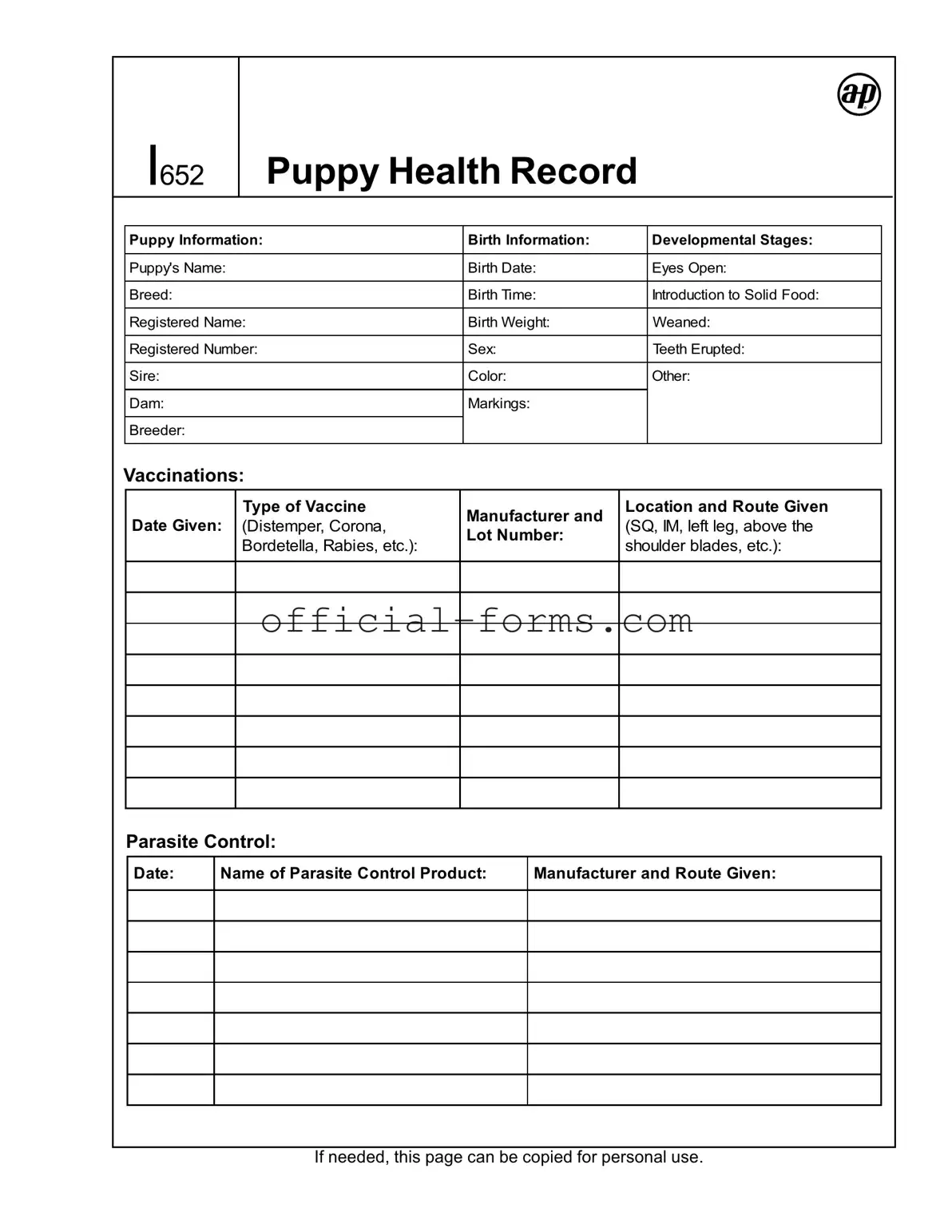Filling out the Puppy Health Record form is essential for keeping track of your puppy's health. However, many people make common mistakes that can lead to confusion or incomplete records. Here are nine mistakes to avoid.
First, many individuals forget to include the puppy's name or provide an incorrect name. This can lead to difficulties in identifying the puppy, especially if there are multiple pets in the household. Always double-check that the name matches what you call your puppy.
Another frequent error is omitting the birth date. This information is crucial for tracking vaccinations and developmental milestones. If the birth date is missing, it may result in missed vaccinations or treatments.
People often skip important details about the puppy's breed and color. These characteristics can be important for veterinary records and breed-specific health concerns. Ensure that this information is accurately filled in to avoid any potential issues later.
When it comes to vaccinations, many pet owners mistakenly leave out the type of vaccine given. This is essential for future reference and for any new veterinarian who may see your puppy. Always document each vaccination with the correct type and date.
Another common mistake is not recording the manufacturer and lot number of the vaccine. This information is vital in case of a recall or adverse reaction. Make sure to write it down every time a vaccine is administered.
People sometimes neglect to note the location and route given for vaccinations. Whether the vaccine was administered subcutaneously or intramuscularly, this detail is important for your veterinarian to know in future visits.
Additionally, some pet owners forget to include details about parasite control. Noting the product name and date of administration helps keep track of your puppy's health and ensures that they receive the necessary treatments on time.
Another oversight is failing to document examinations or procedures performed by the veterinarian. Keeping a detailed record of any findings or comments can provide valuable insights into your puppy’s health history.
Lastly, many people do not keep track of the schedule of events from birth to spay or neuter. This timeline is essential for understanding your puppy's growth and ensuring that all necessary procedures are completed on time. Make sure to fill this out accurately.
By avoiding these mistakes, you can ensure that your Puppy Health Record is complete and useful for your puppy's health journey. Keeping accurate records will benefit both you and your veterinarian in providing the best care possible.

